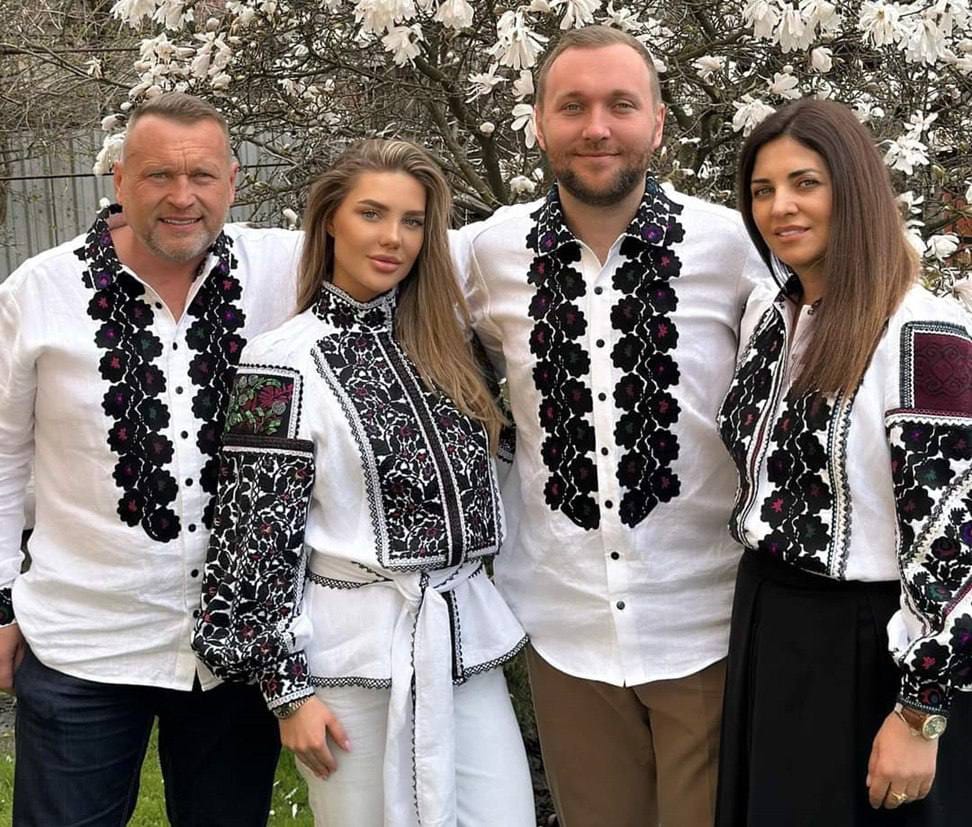Welcome to Investigative Stories from Ukraine, the Kyiv Independent's newsletter that walks you through the most prominent investigations of the past week.
If you are fond of in-depth journalism that exposes war crimes, corruption, and abuse of power across state organizations in Ukraine and beyond, subscribe to our investigative newsletter.
If you enjoy this newsletter, consider joining our membership or supporting us with a one-time donation. Start supporting independent journalism today.
Top investigative stories
______________________________________________
Major supplier of Defense Ministry subject to embezzlement probe arrested offering bribe to law enforcement
Ihor Hrynkevych, a businessman from Lviv, whose companies are investigated for allegedly stealing on army procurement, was detained while attempting to bribe a top official of the State Bureau of Investigations, according to the agency’s statement on Dec. 30 and reports in Ukrainian media that identified Hrynkevych.
Hrynkevych reportedly offered a bribe amounting to $500,000 to one of the Bureau's Main Investigative Department’s top officials to return his companies’ property seized as part of the criminal probe.
The State Bureau of Investigations opened an investigation into Hrynkevych’s businesses a couple of months ago. It found that out of the 23 contracts for supplying clothes for the military that his companies won, they have fully and timely fulfilled only two. The remaining ones were either not delivered at all, supplied partially, or with significant delays, and the prices were often inflated.
According to the investigators, these contractors were in fact construction companies that didn’t have capacities to produce clothes for the army. The estimated damage stands at Hr 1.2 billion ($31.6 million). Hrynkevych faces up to eight years in prison.
The Hrynkevych family has been attracting media attention for months. They initially came into the spotlight thanks to their lavish lifestyle.
In August 2023, Ihor Hrynkevych’s daughter Olga posted a picture of the interiors of the VIP train carriage that is used for official delegations, Ukrainska Pravda reported. Renting it costs from Hr 34,000 ($900) to Hr 350,000 ($9,230), depending on the terms.
Censor.Net later reported that, as of May 2023, Olga and her mother Svitlana were owners of Trade Lines Retail, a contractor of the Defense Ministry, which had failed to supply clothes to the army for the total amount of Hr 585,450 ($15,433) on time.
Another Defense Ministry contractor reportedly part of the probe is Construction Alliance Montazhproekt. According to Censor.Net, this firm failed to supply clothes to the army for the total amount of Hr 425,100 ($11,200).
Companies from the Hrynkevych family’s network are also subject to investigations into alleged embezzlement on army procurement conducted by the National Police and State Security Service, according to Censor.Net.
Multiple media outlets reported that family members of Ihor Hrynkevych have bought expensive real estate and cars since they became suppliers of the Defence Ministry after the start of the all-out war.
Read more about the allegations against Hrynkevych in Ukrainian here.
Defense Ministry’s contractor known for procurement scandal buys hotels in Croatia
Tetiana Hlyniana, the businesswoman in control of the companies that sold food to the army at inflated prices in 2023, bought hotels in Croatia, according to an investigation published by Ukrainian media outlet NV on Jan. 6.
Early last year companies controlled by Hlyniana were at the center of the biggest corruption scandal Ukraine has seen since the start of Russia’s invasion – the Defense Ministry’s infamous food procurement deal that caused public outcry and made the ministry revoke the overpriced contracts and sign new ones. This was among the scandals that led to Defense Minister Oleksiy Reznikov's resignation in September 2023.
According to NV, Hlyniana, whose companies have been supplying food to Ukraine’s Defence Ministry since 1995, might have lately started a resort business in Croatia.
In the fall of 2023, Hlyniana spent 10 million euros to acquire companies allegedly owning four-star and five-star hotels in the resort town of Split in Croatia, NV reported, citing the Croatian business registries. The hotels include Mirari, Ora, Lux, and Posh.
Hlyniana also reportedly has a private residence in Brela, another resort town southwest of Split, since 2016.
Read the full story in Ukrainian here.
Energoatom chief allegedly conceals assets, using mother-in-law as proxy to buy real estate
The mother-in-law of Energoatom President Petro Kotin acquired expensive real estate worth millions of hryvnias, which she couldn’t have been able to afford, according to Schemes, an investigative project of Radio Free Europe/Radio Liberty.
According to the journalist investigation, in the summer of 2023, Kotin's 70-year-old mother-in-law bought a two-story house and a 300-square-meter land plot with access to a private pond – paying, on the paper, only Hr 7 million ($183,000).
Soon after the purchase, Kotin and his family settled in the house.
In 2021, Kotin’s mother-in-law bought three neighboring land plots in Kyiv Oblast for around $40,000.
On paper, this property cost her significantly less than the market price, Schemes reported. It could indicate an attempt to hide the real cost of the purchase to evade taxes.
But even at these low prices, Kotin’s mother-in-law couldn’t have afforded these purchases. She only made Hr 79,000 ($9,875) between 2000 and 2009 and currently most likely receives a state pension as a retiree, Schemes reported.
In a written response to Schemes, Kotin said that his mother-in-law had accumulated the money for the purchase by 50 years of savings, cash from close relatives, and loans. The journalists looked into the close relatives of Kotin and concluded that none of them appear to have a source of income that would allow them to chip in for the purchase.
Soon after the journalist investigation, the National Agency on Corruption Prevention began monitoring Kotin over his mother-in-law’s suspicious property purchases, according to lawmaker Yaroslav Zhelezniak, one of the advocators for the check.
Part of the agency's responsibilities is monitoring discrepancies between officials' standard of living and declared income to determine potential illicit revenue sources and other violations.
Kotin, a former director of the Zaporizhzhia Nuclear Power Plant (currently occupied by Russia), has headed Energoatom since 2020, being formally appointed as its president in 2022.
Watch the full story in Ukrainian here.
Impact
______________________________________________
EU sanctions Alrosa, Russia's largest diamond producer, subject of Kyiv Independent’s investigation
The European Union imposed sanctions against Alrosa, Russia's primary diamond producer, and the company’s CEO Pavel Marinychev on Jan. 3, as part of the larger effort to stop precious stones’ flow to the West.
Comprehensive measures to ban the trade of Russian diamonds, including those processed or refined in third-party countries, were instituted as part of the 12th round of EU sanctions against Russia, adopted on Dec. 18, 2023.
Russia is the world's largest diamond producer, earning around $4 billion from the diamond trade last year alone. Alrosa, partly owned by the Russian state, comprises 90% of Russia's diamond production and is the biggest diamond-mining company globally.
In the document detailing the sanctions against Alrosa and its CEO, the EU said that the company is "involved in an economic sector providing a substantial source of revenue" for Russia and "has a long-standing partnership with the Russian Armed Forces."
The U.S., the world’s biggest diamond importer, was the first to sanction the company back in April 2022.
However, an investigation by the Kyiv Independent in October 2023 found that Alrosa nonetheless continued to sell diamonds to the West, including to the U.S., and even was able to increase its profits in 2023.
The U.S. sanctions against Alrosa initially impacted the Russian diamond market, particularly concerning direct exports to the EU and the U.S., but trade with other markets, namely the UAE, soon increased.
The new EU measures to crack down on Russia's use of third-party countries to obfuscate the true origin of Russian diamonds can be complicated by diamond sellers’ continuous attempts to bypass sanctions.
Alleged unofficial boss of the key government agency resigns after journalist report
Vadym Hrona, a businessman and a member of the public anti-corruption council of Ukraine’s Agency for Investigation and Management of Assets, known by its Ukrainian acronym ARMA, filed a letter of resignation after a journalist investigation named him an unofficial boss of the agency.
The December investigation by Bihus.Info media outlet found Hrona, previously employed by ARMA, regularly attending the agency’s Kyiv headquarters after his official resignation in October 2023. Based on conversations with employees and leaked CCTV footage, Bihus.Info reported that Hrona works from the ARMA headquarters and gives instructions to the agency’s employees while not being officially employed there.
Hrona’s role as a member of the agency’s public anti-corruption council doesn’t envision this behavior or allow free access to its offices. As of the time of the story publication, the council had only met once, so its activities can’t be the reason for Hrona’s daily visits to the agency’s offices.
According to Bihus.Info, this raises concerns that Hrona was a behind-the-scenes curator of the state agency.
ARMA is responsible for managing assets seized from people under indictment, generally accused of corruption, until a final decision is reached as to their guilt or innocence. ARMA is a controversial agency, having been embroiled in scandals that led to high-level calls for its dissolution.
Meanwhile, in Russia
______________________________________________
Uzbekistan, Kazakhstan cotton supplies power Russia’s gunpowder production
Kazakhstan and Uzbekistan have increased exports of cotton, a key ingredient of gunpowder, to Russia since the start of the country’s 2022 full-scale invasion of Ukraine, found an investigation by the Organized Crime and Corruption Reporting Project (OCCRP).
The cotton cellulose originating in Kazakhstan and Uzbekistan was bought by the Russian munitions factories for defense purposes, OCCRP reported, citing public procurement contracts. Some of the supplies went to the Russian plants directly while in some cases intermediary importers were involved.
Those Russian state plants, which specialize in the manufacture of gunpowder, ammunition, and artillery, do not release official data about their output and did not respond to OCCRP’s requests for comment.
Four of the plants have been sanctioned by the U.S., Switzerland, and Ukraine.
While cotton pulp can also be used for other than arms production, it has been subject to export controls in the European Union since June 2023 because of its potential military uses.
Read the full story by OCCRP in English here.













